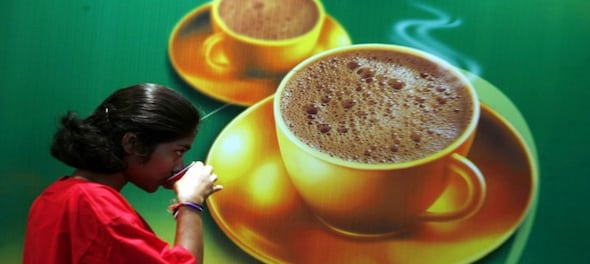
One of the strangest rivalries in Indian business has been the nearly 60-year-long battle for the affections of the country’s coffee drinkers. In one corner is Nestle whose Nescafe is the world’s leading brand in instant coffee with sales in over 180 countries. Nescafe began life in Switzerland way back in 1938 as a soluble coffee powder. It took another 25 years for Nestle to launch the brand in India, which at that time wasn’t much of a coffee-drinking nation. Over the years, Nestle’s pioneering role and marketing muscle should have given it a dominant share in the country’s rising market for the beverage.
But for all these decades it has had an unlikely rival in Bru, a coffee brand introduced in the country by Brooke Bond at a time when it was the world’s largest tea producer. The UK-based company had opened its first branch in India in Calcutta in 1901 and in 1968 it launched Bru Instant Coffee which was India’s first coffee- chicory mix instant coffee. The man often credited with introducing Indian households to instant coffee was T S Nagarajan, the former managing director of Brooke Bond who passed away last year.
Through the 1980s even as occasional competitors like Indodan tried to make an impression with their brand of coffee, the two giants held steady with Nescafe leading in the instant coffee market even as Brooke Bond’s blend of coffee and chicory remained the overall market leader. Tata Coffee, another player in the market with its instant coffee, came much later and hardly made a dent in the two market leaders’ share.
Then in 1984, the rivalry between the two brands was given a new edge when Unilever, which competed with Nestle across other food categories, bought Brooke Bond and in India, the latter became a part of Hindustan Unilever (HUL). Just as it did in the tea category, HUL aggregated its various brands of coffee like Dilkush, Deluxe Green Label, Cafe and Cafe Gold and Bru instant under the master brand Bru. It also launched regional flavours like Bru Malabar, a 90:10 Coffee-Chicory mix and by 2014, had Bru caught up with Nescafe in instant coffee sales.
Its main advantage was its strength in the South, particularly in Tamil Nadu where coffee consumption, particularly that of filter coffee, was very high. However, as the coffee culture spread to the North and more cafes and baristas came up, Nestle’s larger global spread helped it score.
Since then both companies have gained from the deeper penetration of coffee in the country. After growing at an average of barely 2 percent per annum till 2000, coffee consumption has more than doubled since then. Both companies now have products straddling the entire price range.
Bru and Nescafe today, have an almost equal 35 percent share each of the market for coffee in the country.
—Sundeep Khanna is a former editor and the co-author of the recently released Azim Premji: The Man Beyond the Billions. Views are personal
(Edited by : Ajay Vaishnav)
First Published: Apr 11, 2022 5:41 PM IST
Check out our in-depth Market Coverage, Business News & get real-time Stock Market Updates on CNBC-TV18. Also, Watch our channels CNBC-TV18, CNBC Awaaz and CNBC Bajar Live on-the-go!


2024 Lok Sabha Elections | What does a low voter turnout indicate for NDA and I.N.D.I.A Bloc
Apr 29, 2024 5:48 AM
'Borrowed' leaders: Congress hits out at AAP for not fielding their own candidates in Punjab
Apr 28, 2024 9:53 PM
EC asks AAP to modify election campaign song and Kejriwal's party is miffed
Apr 28, 2024 9:25 PM

